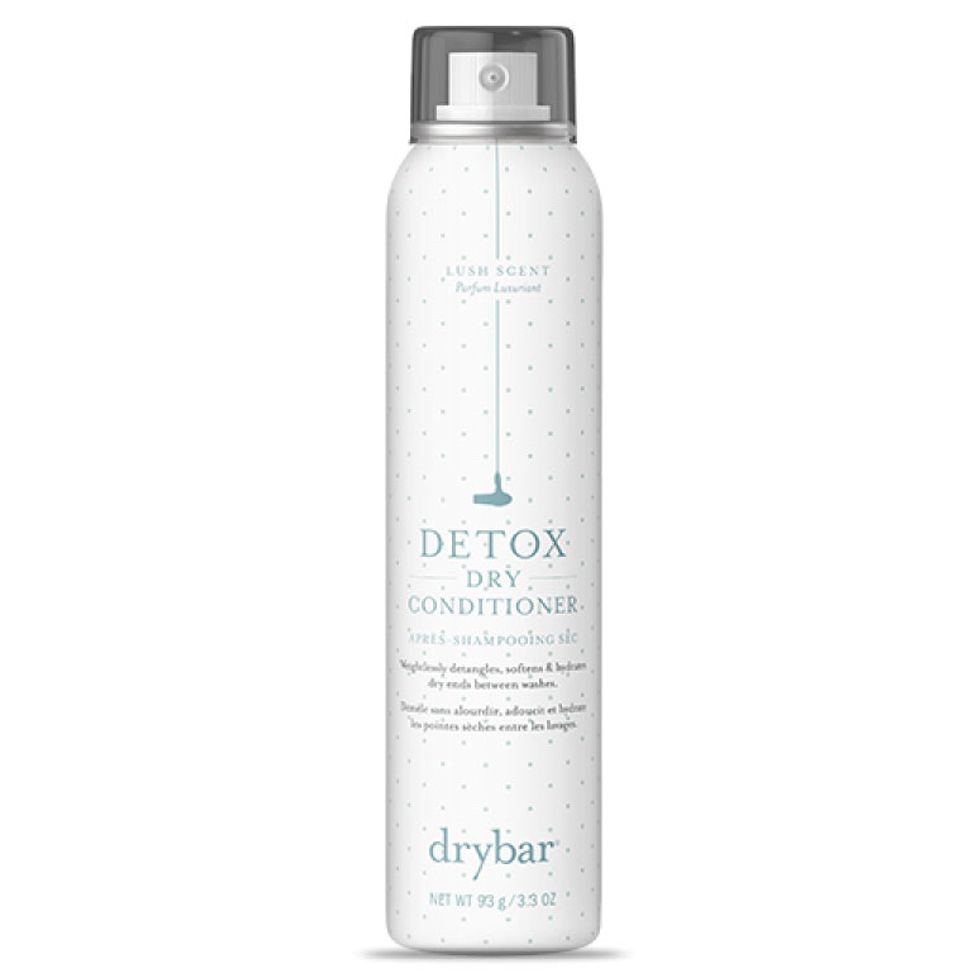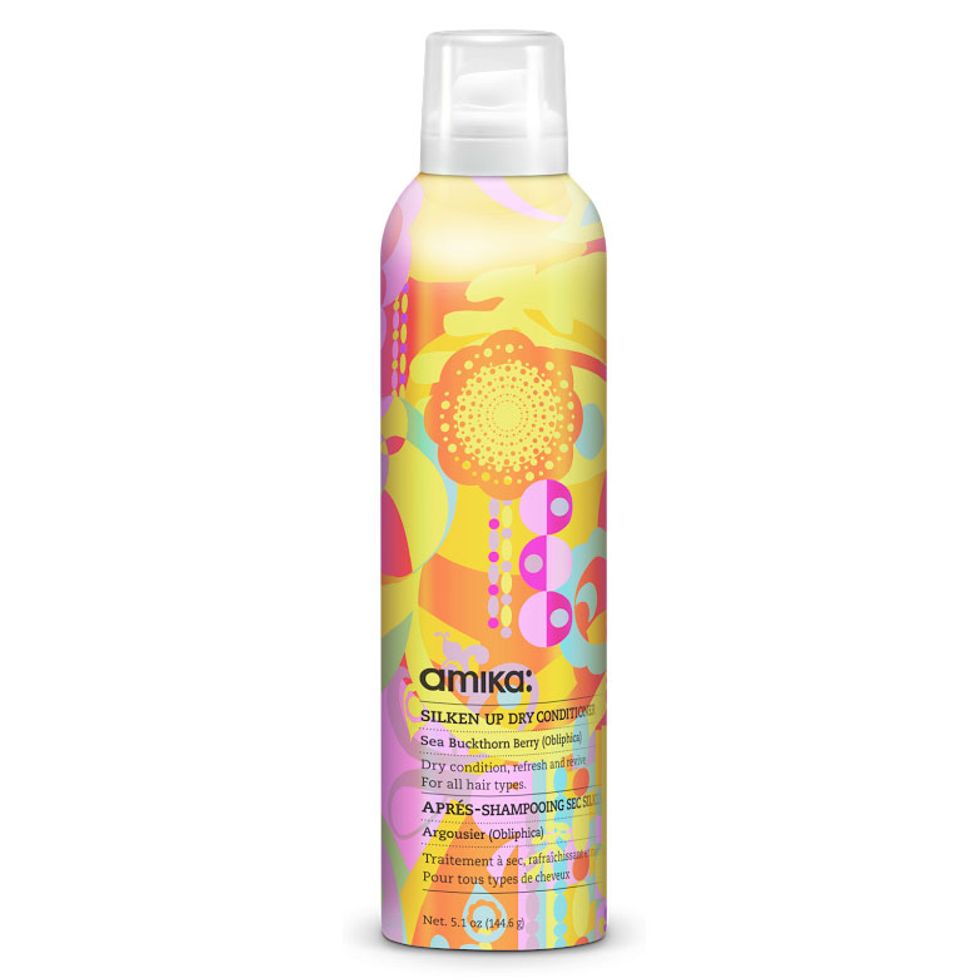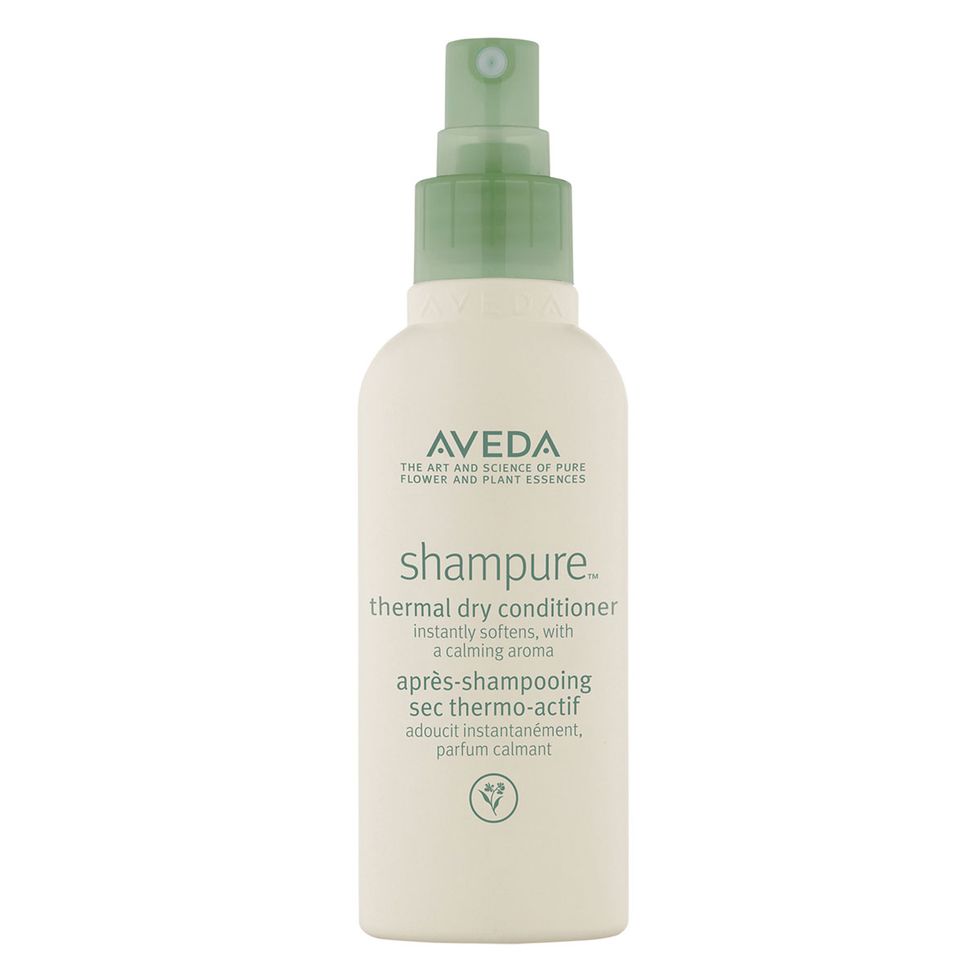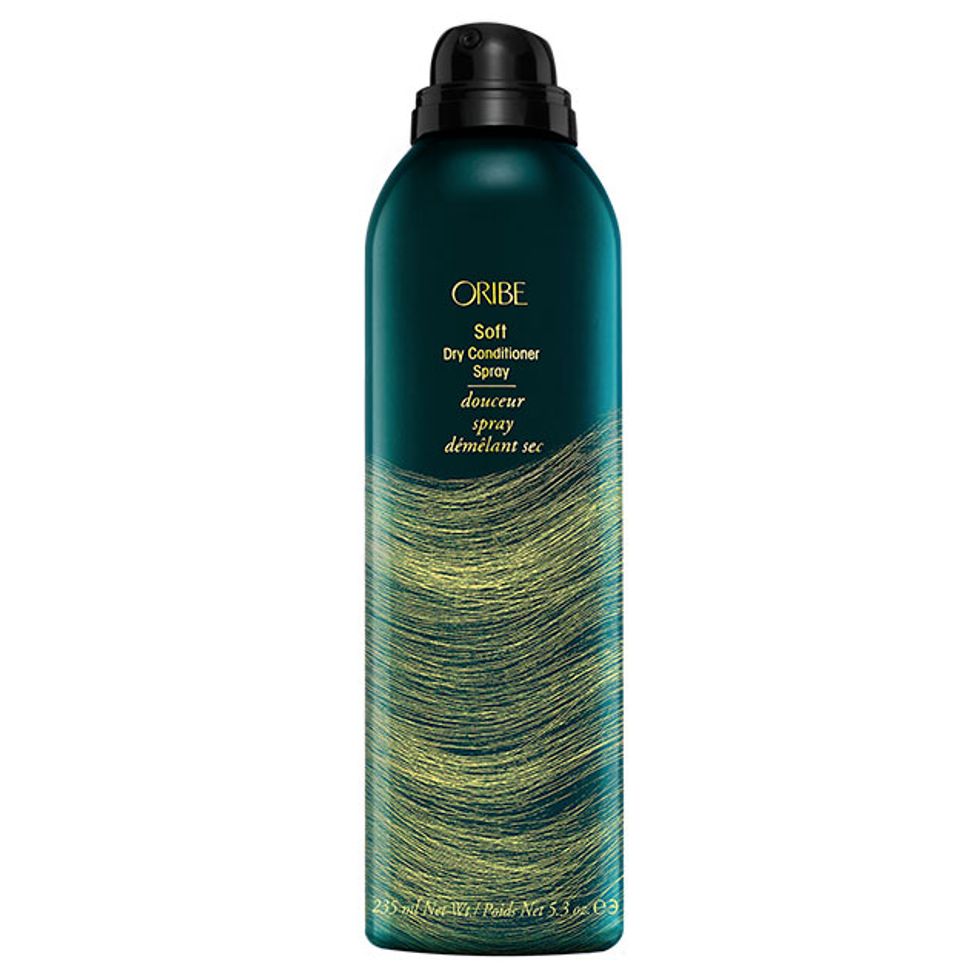The Science Behind Dry Conditioners (and Which Ones to Buy)
It’s everything that dry shampoo isn’t.
19 July, 2019
Hair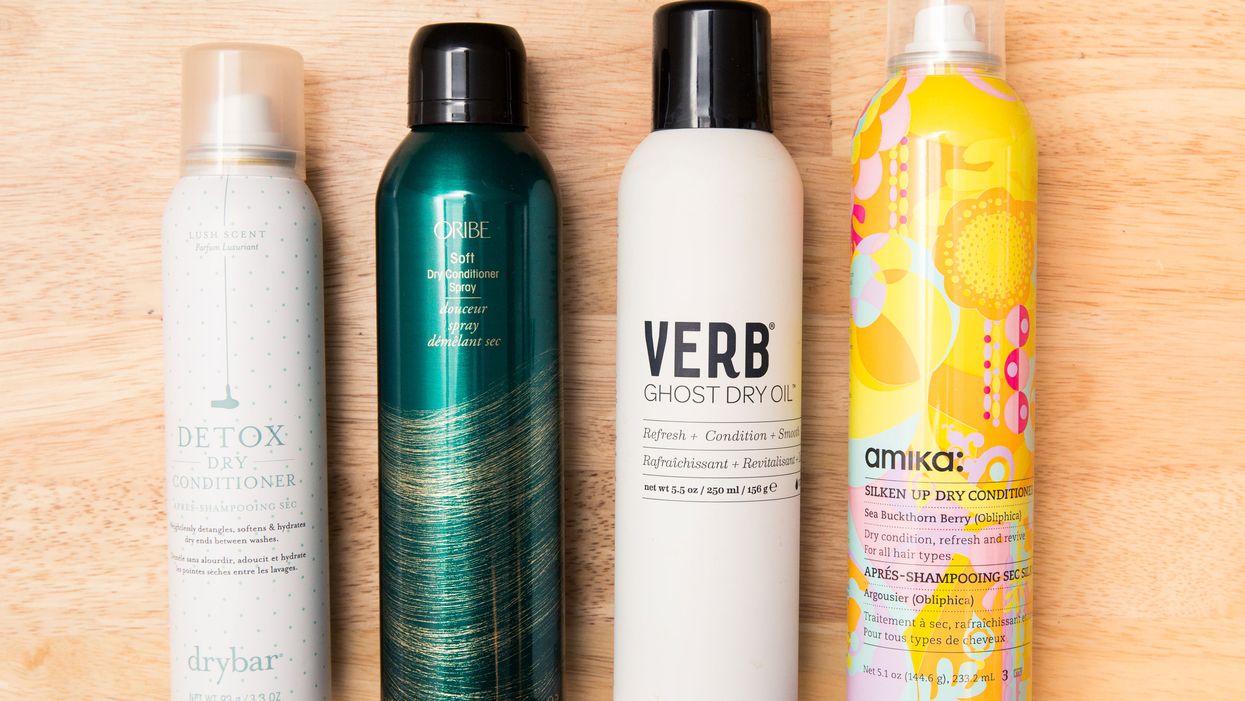
Alec Kugler
10 November, 2021
We’re pretty well versed on the essential that is dry shampoo for that sometimes-shaky interim between washes. But we seem to neglect the other side of the coin between scrubbings. Enter dry conditioners, a product that promises to add a layer of protection, prevent dullness and tame frizz, and—the queen of all hair care claims—extend a blowout! For those of us who find ourselves with a) hair that’s too fine for weighty conditioners, b) hair so thirsty it soaks up an overnight mask still wanting more, and/or c) a lazy morning routine (that’s everyone, right?), dry conditioner says it can end our quest for silky, shiny, hydrated hair.
I find myself firmly in camp A with a toe in camp C; I can be impatient and prone to streamlining, with hair that seems to recoil from any viscous product holding it down (confession: I haven’t used conditioner in years). I was doubtful, but optimistic, about what I assumed was beloved dry shampoo’s partner in crime. Weeks and bottles later, I can confirm: Dry conditioner is my hair saver, making my hair feel smooth without becoming limp. We spoke with cosmetic chemist Ginger King, who filled us in on the science behind the product, leaving us doubly assured that dry conditioner should indeed become our go-to hair care product in between washes. Here’s why:
I find myself firmly in camp A with a toe in camp C; I can be impatient and prone to streamlining, with hair that seems to recoil from any viscous product holding it down (confession: I haven’t used conditioner in years). I was doubtful, but optimistic, about what I assumed was beloved dry shampoo’s partner in crime. Weeks and bottles later, I can confirm: Dry conditioner is my hair saver, making my hair feel smooth without becoming limp. We spoke with cosmetic chemist Ginger King, who filled us in on the science behind the product, leaving us doubly assured that dry conditioner should indeed become our go-to hair care product in between washes. Here’s why:
It functions as a speedier, lighter conditioner
“Dry conditioner is just meant for a quick condition of hair,” King says. Accordingly, only a few sprays are necessary to see results, and King recommends focusing in on only the top layer of hair. She likens the product to “somewhat of a dry oil spray...not too heavy.”
You don’t have to give up your dry shampoo routine
“Dry shampoo is used on the scalp primarily and dry conditioner is on the hair,” she says. So while both products complement each other, neither requires the other to be effective. In fact, you might think of the two products as inverses of one another: “Dry shampoo soaks up scalp oil and dry conditioner helps to provide some moisturization via some oil, but [is] never heavy.”
It can extend a blowout
But read the label! Not all dry conditioners are meant to extend blowouts, so skim the label for “polymers” (kind of like a light resin that will coat the hair) to confirm, recommends King.
It’s great for most types of hair
Dry conditioner is especially effective for fine to medium hair and for people who cannot use shine spray with silicone, says King, but it is less substantial for coarser hair types due to the product’s lightweight application. Telltale signs that you’re in need of a dose of dry conditioner include flyaways and a lack of luster.
